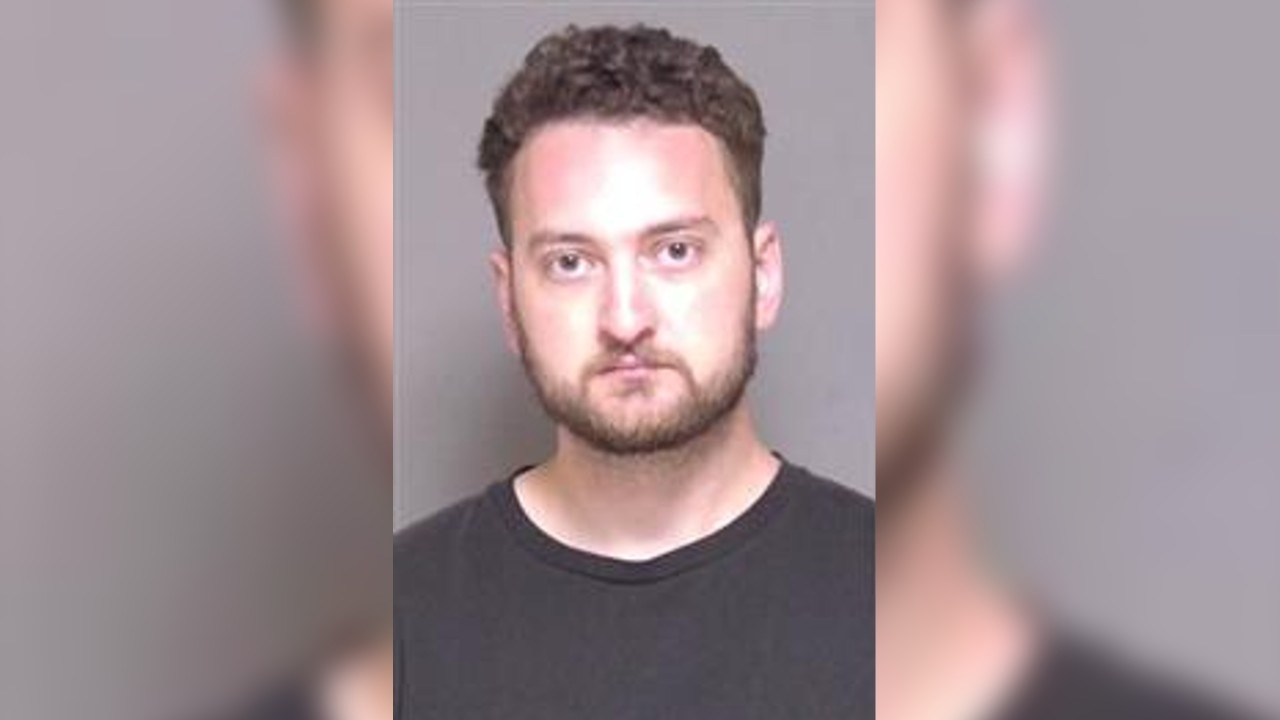Former Mayo Clinic doctor charged with poisoning wife, collecting life insurance

A Rochester man is charged with second-degree murder for the death of his wife after investigators say he used his knowledge as a poison specialist to drug and kill her.
A criminal complaint accuses Connor Fitzgerald Bowman, 30, of administering a dose of liquid colchicine that killed his wife on Aug. 20.
5 EYEWITNESS NEWS sister station KAAL reports that Bowman was arrested on Friday after a monthslong investigation.
Rochester police say Bowman’s wife, a 32-year-old pharmacist named in an obituary as Betty Jo Bowman, went to the Mayo Clinic emergency room Aug. 16 with diarrhea and symptoms of severe dehydration; she died days later.
Court documents say the Southeast Medical Examiner’s Office initially notified police of the suspicious circumstances around the woman’s death and halted the cremation of the woman’s body.
The Southeast Medical Examiner’s Office noted that while Betty Bowman’s symptoms were similar to food poisoning, she did not respond to treatment and died after cardiac issues and eventual organ failure.
Police also received a call saying that Connor Bowman and his wife were struggling with marital issues and discussing a divorce.
Investigators also learned that the couple kept separate bank accounts because of Connor Bowman’s debt and that he remarked that he was going to get $500,000 from a life insurance payout for his wife’s death.
The criminal complaint states that Connor Bowman suggested his wife was suffering from the rare illness hemophagocytic lymphohistiocytosis, or HLH, a disease where the immune system attacks the body’s organs. Despite Betty Bowman never being diagnosed, her husband included a reference to it in her obituary.
The complaint also details email correspondence between Connor Bowman and the medical examiner where he asked questions about how thorough the toxicology analysis would be and what specifically the cadaver would be tested for.
Connor Bowman also said her body should be cremated immediately and argued her death was natural, the complaint states.
A Rochester police detective then received reports that Connor Bowman used his hospital credentials to access his wife’s patient account. After getting a warrant to search Connor Bowman’s online activity, the detective found that his wife granted him access to her protected health information, which expired when she died on Aug. 20.
Further investigation revealed that Connor Bowman checked his wife’s electronic health records (EHR) and reviewed admission information, notes, medications, allergies and an operating room log. The complaint says the defendant looked at her EHR daily and modified it on Aug. 22. In the EHR, he created a “documentation encounter” but did not add anything. However, creating the documentation identified Connor Bowman as being part of his wife’s care team, allowing him to enter the medical record without entering his credentials. The complaint states he viewed images, notes, medications and other encounters in his deceased wife’s EHR from Aug. 23-31.
Another warrant was then obtained for the defendant’s online search history, and police obtained his University of Kansas HP laptop. The complaint states the university was made aware the device was seized in connection to the investigation.
On Sept. 29, police were contacted by a woman from the University of Kansas who said Connor Bowman told her he was a suspect in his wife’s death. She then told police that the defendant had the university’s devices in order to do his work as a poison specialist. The devices were also equipped with a VPN authentication process that would only allow Connor Bowman to use them. He reportedly worked in this role on Aug. 5, 6, and 10.
The woman stated that Connor Bowman was researching colchicine, a drug used to treat gout, despite not receiving any calls regarding colchicine. No other employees received calls for colchicine, according to the complaint.
Connor Bowman’s search history revealed questions such as “internet browsing history: can it be used in court?” and “police track package delivery” and “delete amazon data police.” He also searched for and viewed shopping pages for sodium nitrate, which can be used to limit oxygen transport through the body.
The complaint details a search on Aug. 10 where Connor Bowman researched “food v. industrial grade sodium nitrate” and accessed a medical journal that is used to determine the lethality of substances. He then used the information to calculate what a lethal dose of colchicine would be for Betty Bowman, court records allege.
Toxicology results later revealed that colchicine was present in Betty Bowman’s blood and urine. Court documents state that she was never prescribed colchicine, diagnosed with gout, HLN or given any colchicine at the hospital.
Officials found 29 ng/ml in Betty’s blood, which was taken about 24 hours after she started showing the symptoms that brought her to the hospital. The medical examiner also stated that amount is “an elevated level” and that the substance metabolizes quickly.
Connor Bowman was arrested and his home was searched, where police say they then found a receipt for $450,000.
Mayo Clinic released the following statement on Connor Bowman’s affiliation with the hospital:
“We are aware of the recent arrest of a former Mayo Clinic resident unrelated to his Mayo Clinic responsibilities. The resident’s training at Mayo Clinic ended earlier this month.”